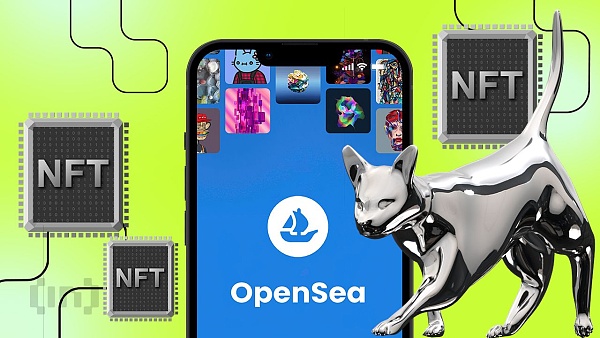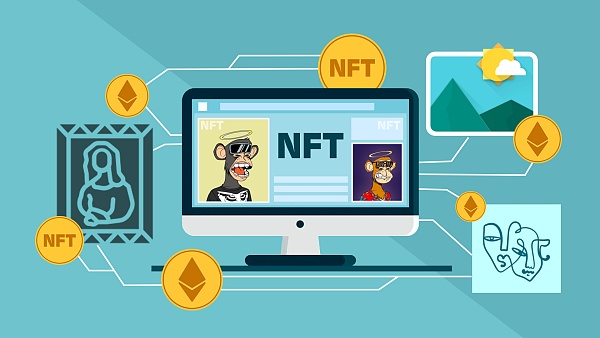In an exclusive interview with BeInCrypto, Devin Finzer, co-founder and CEO of OpenSea, discussed the current state of NFTs and the future of digital markets.
Amid speculation about the decline of NFTs, Finzer offered a clear vision for continued growth and innovation.
NFTs are not dead, he noted.
In fact, gaming and physically-backed NFTs are areas of growing interest among market participants. To this end, OpenSea has partnered with Courtyard on a project involving Pokémon cards and has worked with leading game developers such as Parallel and Revolving Games.
Finzer told BeInCrypto: “We’re seeing new use cases constantly emerging on OpenSea. Ensuring OpenSea is the home for all types of NFTs is critical to joining the next wave of NFTs.”
OpenSea has also revamped its collection pages, giving creators a richer, customizable page to tell the story of their projects. This adaptability applies to all types of NFTs, whether they’re profile pictures, games, or physical items.
According to Finzer, the platform is committed to evolving with new utility trends, ensuring the marketplace remains one of the best places to buy, sell, and collect NFTs.

Currently, OpenSea’s main focus is on enhancing users’ gaming experience. The company has launched immersive game trailer videos and new redemption standards, which enhance the core user experience. These features are designed to deepen OpenSea’s verticalization in specific NFT fields.
In Finzer’s view, games are a good example where it is important to highlight gameplay through videos, and the huge gaming industry is expected to drive the application of NFTs. As more and more gamers become first-time owners of NFTs, a frictionless onboarding experience becomes crucial.
Finzer noted that it is important for gamers to experience the game before purchasing an NFT pass, which requires richer goods.
He also emphasized the potential for interoperability, where items or status earned in one game can unlock experiences in another game through open digital ecosystem standards.
The recent rise in the Crypto market has sparked innovation, and improvements in infrastructure have made NFT trading more attractive and cost-effective.
Finzer believes that these developments are critical to onboarding the next wave of users. He mentioned: "We believe that these investments are an important foundation for attracting the next wave of millions of users."
For example, OpenSea's new "cold start" onboarding experience simplifies the wallet creation process and expands the use of fiat currency payments. Users only need an email to create an OpenSea account with a self-custodial wallet.
This integration allows users to seamlessly buy, sell, send and receive digital assets and NFTs, which is a critical step for new entrants into the Crypto ecosystem.

Finzer also expressed admiration for Parallel, a leader in Web3 gaming, and believes that the expansion of utility-backed NFTs is critical to the development of the industry.
“If our space is to continue to grow and expand beyond the core community, we need to continue to see more NFT collectibles emerge with real-world utility,” he said.
Despite the turbulence in the NFT market, Finzer remains optimistic about its future. He hopes to continue developing new features and creating new opportunities to ensure the company’s leading position in the NFT space.
“As new features emerge, we will continue to evolve the marketplace to better market NFTs and make the functionality behind them a reality,” he affirmed.
Finzer’s insights dispel the view that “NFTs are dead.” Instead, these digital assets are constantly evolving, with new use cases, improved infrastructure, and innovative features driving the development of this space.
 JinseFinance
JinseFinance
 JinseFinance
JinseFinance JinseFinance
JinseFinance Bankless
Bankless Coindesk
Coindesk Cointelegraph
Cointelegraph Cointelegraph
Cointelegraph Bitcoinist
Bitcoinist Cointelegraph
Cointelegraph Bitcoinist
Bitcoinist Cointelegraph
Cointelegraph